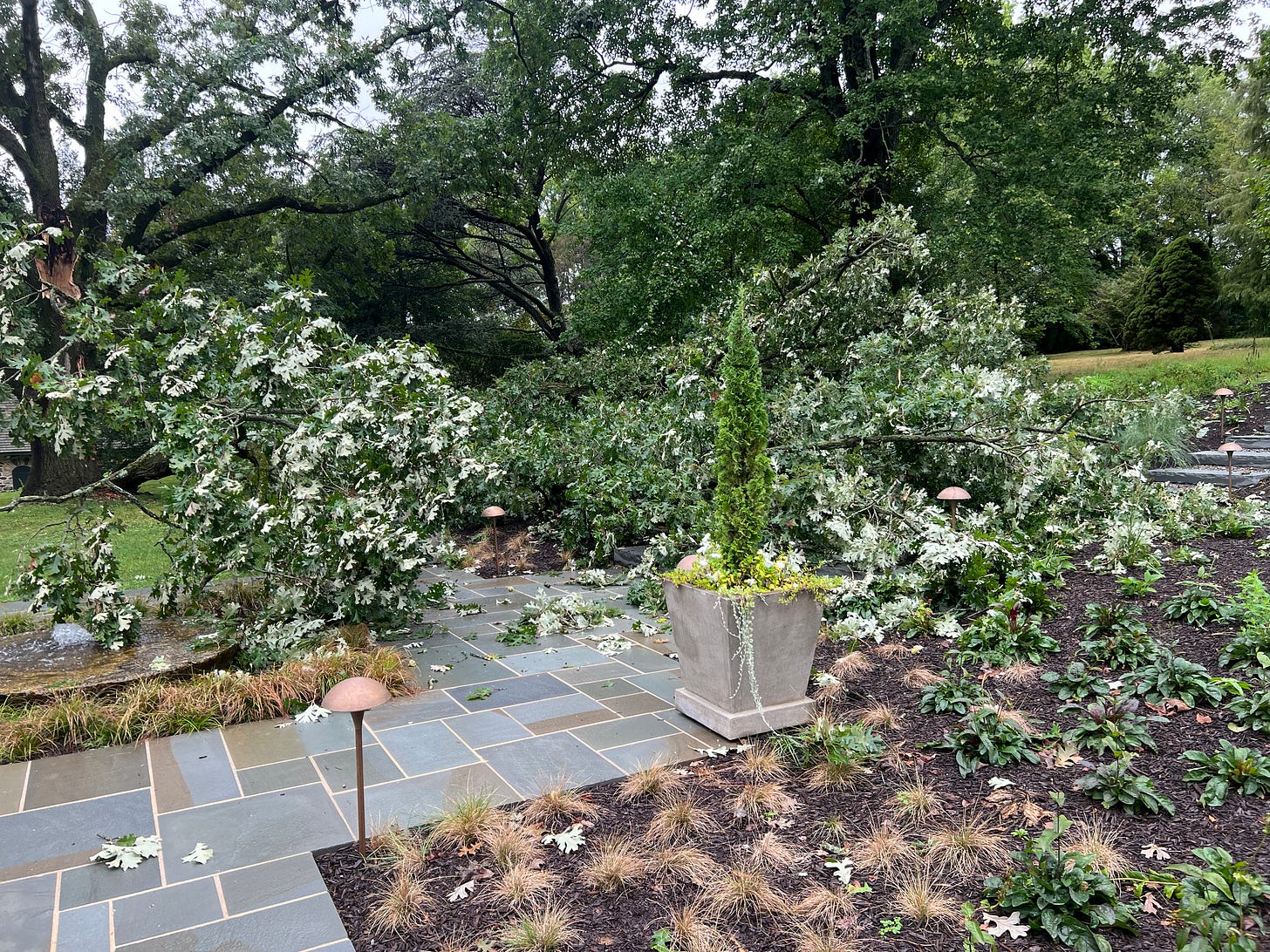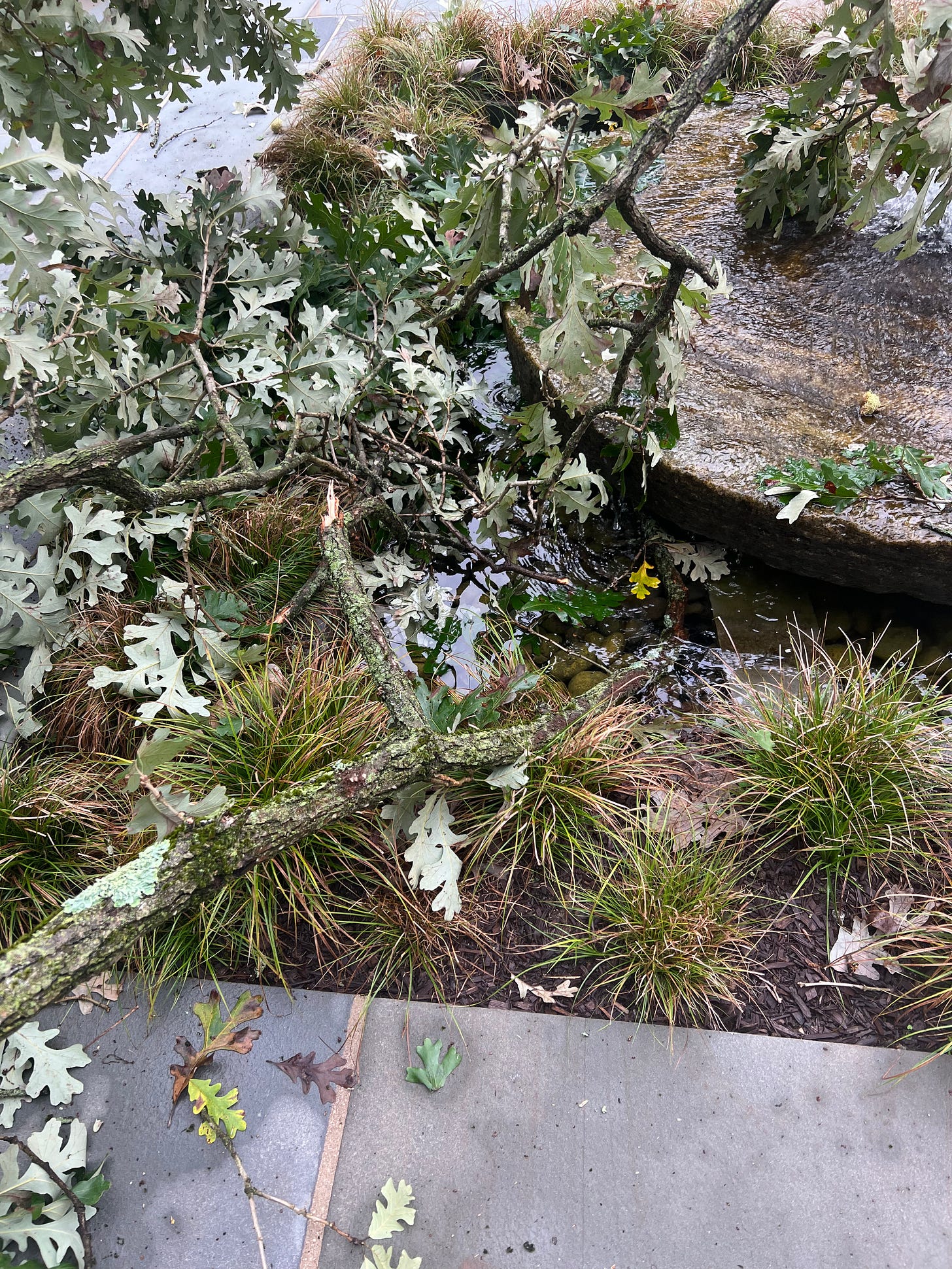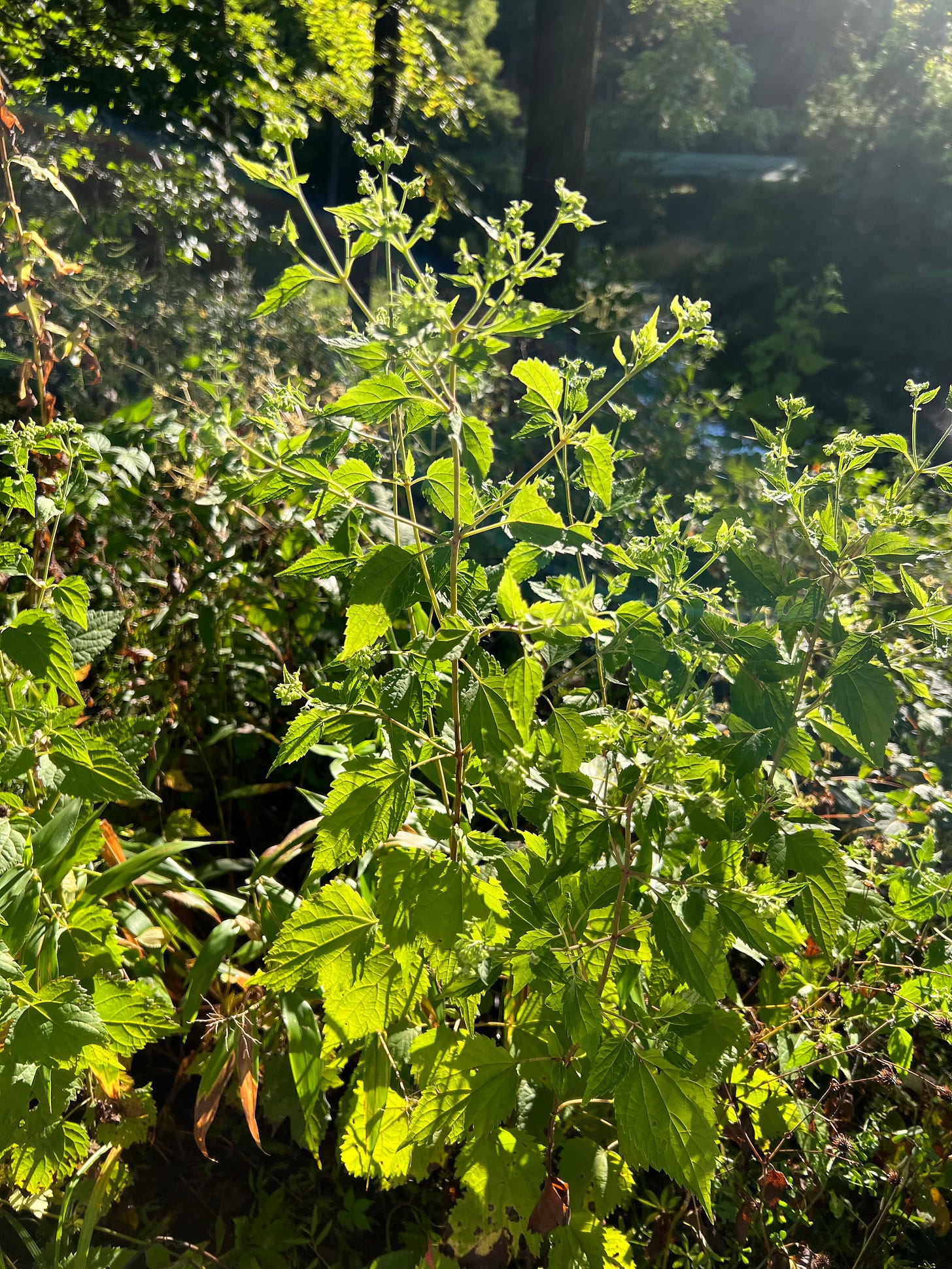Dare Gardeners Play God?
Puddock Hill Journal #22: Reflections on a backyard steward’s place in nature.
When someone asked Albert Einstein whether he believed in God, he is said to have replied, “I believe in the God of Spinoza.”
Baruch Spinoza, to refresh your memory, was a 17th Century Dutch rationalist philosopher who argued that God and the universe are one and the same. Some consider him the first modern philosopher, with Hegel famously saying, “You are either a Spinozist or not a philosopher at all.”
Others took offense to Spinoza’s conception of God, which was considered so radical in its time that, at age 23, the Jewish community into which Spinoza had been born excommunicated him. Even his own family wrote him off.
An updated interpretation of Spinoza’s central thesis might be expressed, “God is the laws of nature.” To put it yet another way, “God is physics,” because physics lies at the bottom of everything. I think that is what Einstein was getting at.
Spinoza was also a determinist who did not believe in free will. If the laws of nature are immutable, he figured, then our every impulse is already baked into the equation.
Yet, even people who don’t believe in free will get up and go to work in the morning. Spinoza made his living as a lens grinder and instrument maker. Determinist shopkeepers conduct business. Scientists still try to describe the world. Gardeners garden.
I’m not as smart as Einstein or Spinoza, but I confess that the unity of God and the universe appeals to my instincts as a nature lover and lazy Buddhist even while its consequences make me uneasy.
Nearly every week I have some experience at Puddock Hill that causes me to wonder whether I’m pushing in futility against the universe. I relocate a shrub to a “better” place and it flounders. I cut back an invasive vine and it returns with greater vigor. I plant a tree and it dies.
No doubt anyone reading this newsletter has seen favorite plants whither because the sprinkler doesn’t reach them or because moles dig up the roots or because aphids eat the leaves or, sometimes, for no discernible reason at all. How do we answer these assaults? Well, if you’re a dedicated gardener, you keep going, keep doing your thing. Determinism made you, well, determined.
How about the backyard steward? The idea of gardening to promote nature is a little different from “normal” gardening, because we purport to be setting the interests of the universe ahead of our own whims. If all gardeners in some sense are playing God, backyard stewards leave themselves more exposed to rebuke because they fool themselves into believing that nature will unequivocally support their efforts.
Well, there is an old Yiddish expression that goes, “Der Mensch Tracht, Un Gott Lacht.” (I don’t speak Yiddish; I looked it up.) In English, it means, “Man plans, and God laughs.”
Last week my post about some of the great old trees around Puddock Hill included a picture of this lovely white oak:
This week, after a heavy downpour, we heard a great crash and ran outside to look aghast upon this scene, viewed from the opposite side of the tree:
A giant limb had fallen!
Last year our arborist talked me into treating this great old tree for Oak lacebugs (Corythucha arcuata), which are native insects. The tree seemed less than healthy, and as a specimen tree I felt an obligation to do everything we could to make it happier. It responded well.
In addition, we had a wet summer, which generated heavy leaf out everywhere. In August, the late-summer drought hit. The smart trees started shedding leaves. Not so much this old oak. Next, a day of torrential rains arrived. That’s when the limb came sheering off.
How big was that limb? Here’s a picture of the wood, which we’ll eventually remove, piled nearby:
So sad. Furthermore, it fell right on our new patio garden. Deep breath. Remember: Der Mensch Tracht, Un Gott Lacht.
On the bright side, this great crashing down damaged none of our hardscape: neither paving stones nor light fixtures nor the millstone fountain which, had it been knocked off its piers, would have required a crane to repair.
This is how close we came to disaster:
Our next move will be to have a professional climber trim the tree and cable it. Ka-ching! But what else to do?
Alan Watts, largely responsible for introducing the concept of Zen to the West, explains karma thus:
Man is involved in karma when he interferes with the world in such a way that he is compelled to go on interfering, when the solution of a problem creates still more problems to be solved, when the control of one thing creates the need to control several others. Karma is thus the fate of everyone who “tries to be God.” He lays a trap for the world in which he himself gets caught.
What else is backyard stewardship than feeling compelled to go on interfering with the natural world that we have so knocked sideways?
In order to help restore the balance on our little patch of ground, we erected a deer fence at great expense. Just two weeks later, an 80-foot white pine came down in a wind storm, falling not across the fence, which would have been bad enough, but along its length, taking out four sections. Der Mensch Tracht, Un Gott Lacht.
I spend an inordinate amount of psychic energy worrying over our two ponds. They are not fully natural; man made them from wetlands. I could neglect them and allow them to return to their natural state, but what would that do to the current residents, not to mention our view? Thus, I feel “compelled to go on interfering.”
When I take down an invasive tree, that opens up the canopy to other invaders, such as Japanese stilt grass, which we fight like mad this time of year, racing to mow it all down before it sets seed. Thus, “the solution of a problem creates still more problems to be solved.” Doesn’t it?
In the determined future, the Earth will one day fall into the sun. Much sooner, man’s compulsion to burn things may render the planet uninhabitable for mammals. Before that day, invasive species will likely have won the war for most ecological niches.
Yet we backyard stewards go on, don’t we?
What would Spinoza have done?
In defiance of the controversy he stirred up in his lifetime, Spinoza was “the noblest and most lovable of the great philosophers,” according to Bertrand Russell. In affirmation, Anthony Gottlieb noted that he “not only preached a philosophy of tolerance and benevolence but actually succeeded in living it.”
If Spinoza lived today, I think he’d be a backyard steward, too.
Maybe misery eventually comes to those who attempt to play God in the garden. But that’s only because our hearts are in the right place.
I was feeling discouraged just a few weeks ago over the absence of native Great blue lobelia (a Cardinal flower relative), which we saw in dribs and drabs last year. My despair was premature. It has broken out all over. Here’s some along the stream:
Native White snakeroot (Ageratina altissima) gets ready to bloom along the upper pond path:
Echinacea cultivars decorate the raised beds:









